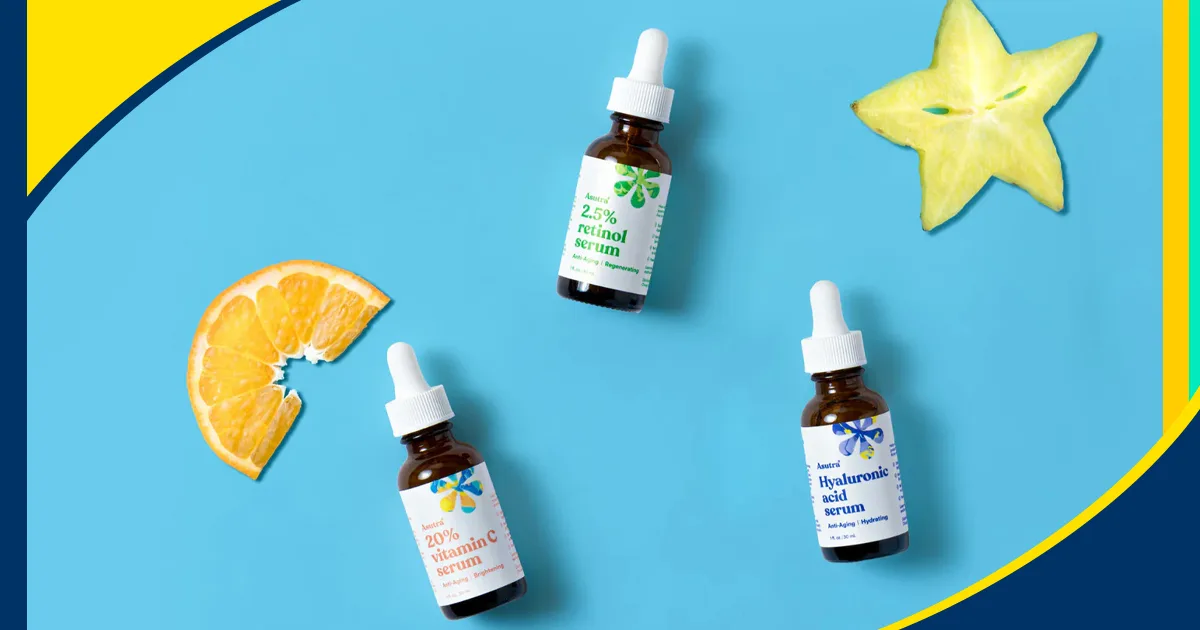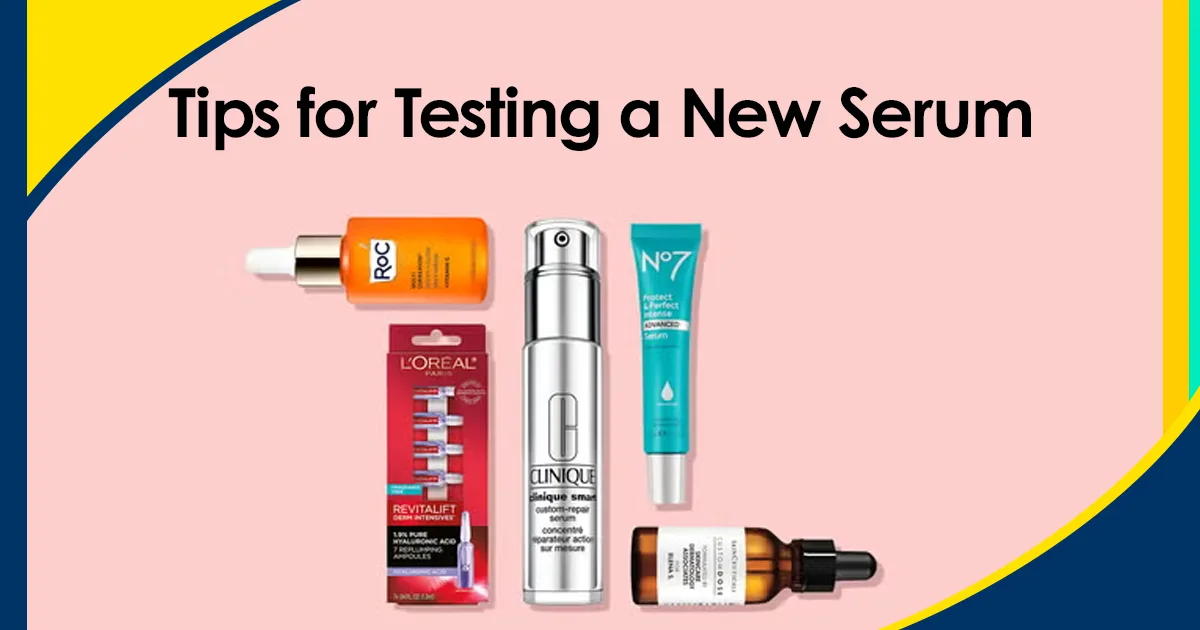
How to Choose the Best Anti Aging Serum for Your Skin
Are you ready to discover the secret of having youthful, radiating skin? Finding the right anti-aging serum can be a daunting task with the influx of the products. Worry not though—I am here to help! This guide will help you understand how to choose an anti-aging serum according to your skin. Let’s start with some basics first.
Understanding Anti-Aging Serums
Understanding anti-aging serums includes knowing their ingredients and how those ingredients treat signs of aging, including wrinkles and fine lines.
What Are Anti-Aging Serums?

Anti-aging serums are non-greasy, gel-based products consisting of various active ingredients responsible for the appearance of wrinkles, sagging, and fine lines. Being more concentrated than moisturizers, they are a great addition to skincare routines. Retinol, peptides, and antioxidants are only a few of several ingredients that help restore digesting elasticity and increase the rate at which new skin cells appear.
Benefits of Anti-Aging Serums
What makes serums so successful? The effectiveness of serum is based on the fact that such products easily seep into the skin and infuse powerful ingredients into troubled spots. Smoothing fine wrinkles and bright angles are but a few of the aspirations serums help with. Lastly, plenty of the serums extend hydration thus enabling the skin to stay healthy and bouncy.
Identifying Your Skin Type
Understanding one’s own skin has to be important so that a person is able to choose the right anti-aging serum, as all skin types react differently to several ingredients.
Why Skin Type Matters
Most of the serums do not work the same and skin type is one of the factors that determine how well a product works for one person to another. Oily skin would probably like a certain serum that has a matte finish while dry skin would look for serums that can moisturize them. Knowledge of one’s skin type is the first step towards making an informed choice.
How to Determine Your Skin Type
How to know your skin type? Not to worry. Try this: when you wash your face, do not apply anything to your face for one hour. If something tugs at your skin, you most probably have dry skin. If there is moisture everywhere, you have oily skin. Both conditions? That’s combination skin. And if it gets red at the slightest touch, you possibly have sensitive skin.
Key Ingredients to Look For
When looking for an anti-aging serum, concentrate on effective ingredients retinol, hyaluronic acid, and vitamin C, which assist in wrinkle reduction, moisture, and brightening of the skin.
Retinol and Its Benefits

An anti-aging solution that everyone is becoming fond of is retinol. As its source is vitamin A, it triggers the majority of skin cell turnover, therefore minimizing wrinkles and enhancing skin texture – It acts as a personal trainer for your skin by facilitating regeneration and stimulating firmness.
Hyaluronic Acid for Hydration
Hydration is one of the secrets to having youthful skin and hyaluronic acid comes in as a hydration superhero. It can retain over a thousand times its weight with water, making your skin fuller and reducing the effect of fine lines.
Vitamin C for Brightening
Vitamin C could be aptly described as sunshine in a jar or bottle. Its an antioxidant that assuages free radicals, evens pigmentation, and brightens the skin tone. who wouldn’t want that?
Avoiding Harmful Ingredients
Avoid alcohol, parabens and synthetic fragrances as they are equally harsh in most serums and will hurt your skin in the long run if ignored.
Ingredients to Stay Away From
Alcohol, parabens, and synthetic fragrances: Such ingredients are present in serums, but should never be in your makeup kit. They remove essential oils from the skin, further irritating it. Clean ingredients should be your top choice.
Checking for Allergens
Have a look at the ingredient list every time and double-check it whenever you have an allergy. If unsure, ask your skin specialist about the safety of the serum for you.
Evaluating Your Budget
Try to muster the resistant two forces of profitability and provision in a fine anti-aging serum not by the expensive name tag but by the active ingredients.
High-End vs. Affordable Options
Do you have to shock your wallet and buy a serum that costs $200? Not quite. Many cheap serums are also good and they do not cost an arm and a leg. The most important thing here is to consider the list of ingredients, not the price.
Value Over Price
In place of looking around for the fanciest names, aim at products that work. Quite often, a 30-dollar serum with the right ingredients is way more effective than similar high-end alternatives.
Tips for Testing a New Serum

Do remember, before introducing a new serum on your face, apply the liquid on a patch area to rule out the chances of developing sensitivity to the serum.
Patch Testing
Before applying the new serum on your skin, there are certain patch testing procedures you should do first. Apply a small amount on your wrist or behind your ear for about 24 hours. Basal reading- no reaction, means you can already use it.
Gradual Introduction
Take it easy. Set for yourself the directive that in the first couple of weeks, the times in a week are just several, and with each subsequent week this number is to gradually increase. This makes things easy on the skin so no irritation occurs.
Creating a Skincare Routine
Finally, regular routines regarding skincare involving the application of the right products say serums ensure that the results are optimal while also creating and maintaining healthy and glowing skin.
When to Apply Your Serum
One rule that must not be broken: always put on the serum after washing your face and before putting on the moisturizer. This is to ensure that absorption and efficiency are maximized.
Pairing with Other Products
Don’t forget the golden rule: apply serum after cleansing and before moisturizing. This ensures maximum absorption and effectiveness.
Reviews and Recommendations
Reading customer reviews and seeking professional advice from dermatologists can help you make an informed decision when choosing the right anti-aging serum for your skin.
Importance of Reading Reviews
Customer reviews are like a sneak peek into the future. They can tell you if a serum is worth trying or if it’s better left on the shelf.
Consulting a Dermatologist
Still unsure? A dermatologist can offer expert advice tailored to your skin’s needs, ensuring you make the best choice.
Frequently Asked Questions (FAQs)
It’s never too early to care for your skin! Most experts recommend starting in your mid-20s to combat early signs of aging.
Yes, but layer wisely! Use lighter serums first and avoid mixing conflicting ingredients like retinol and vitamin C.
Typically, you’ll notice changes within 4–6 weeks, but full benefits can take up to 3 months. Patience pays off!
Conclusion
Choosing the best anti-aging serum isn’t rocket science—it’s all about knowing your skin, understanding ingredients, and being consistent. With the right serum and routine, you’ll be one step closer to radiant, youthful skin. Remember, patience is key; results take time, but they’re worth the wait.






